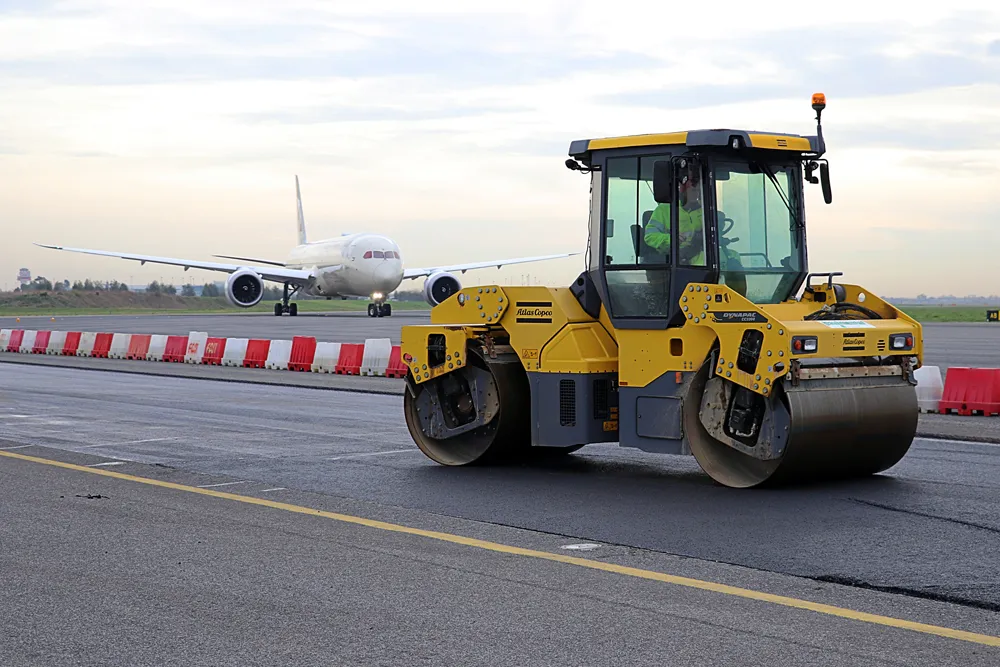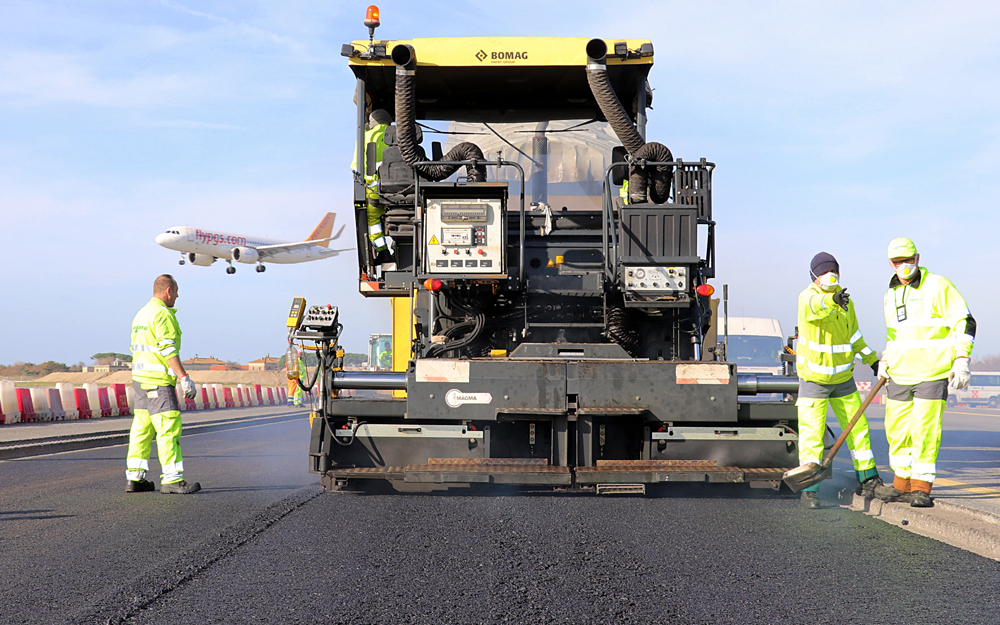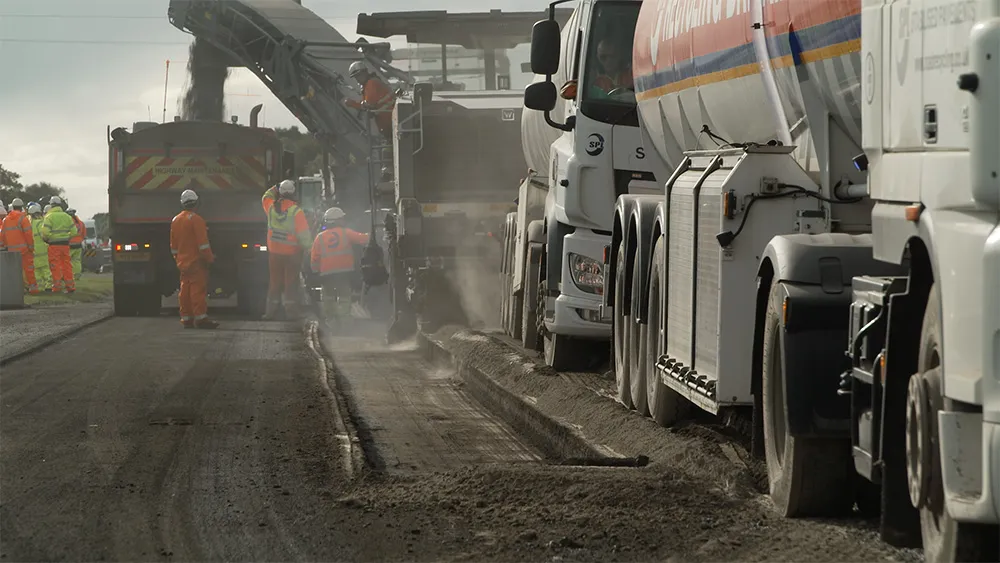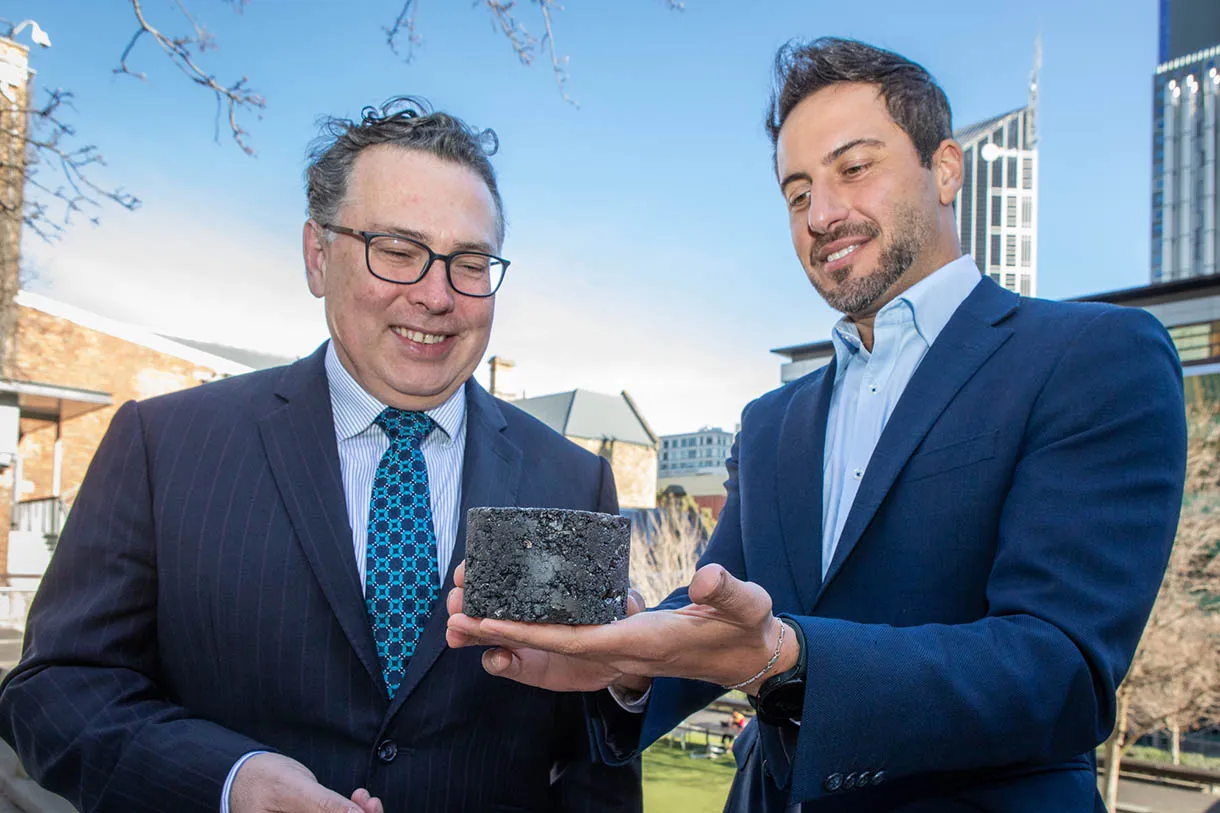
A trial of a new asphalt additive has been carried out during a taxiway rebuild at Rome’s Fiumcino Airport. The work to reconstruct a section of the taxiway has made use of advanced Italian technology in a bid to extend the useful life of the pavement. According to the team, the new Gipave polymer additive is expected to boost the durability of the taxiway surface and to help to prevent pavement deformation.
This trial is the first time that an airport taxiway has been resurfaced with asphalt containing Gipave, which is made from graphene and a specific type of plastic. Of note is that the plastic is a type that is not currently recycled and would otherwise be disposed of at waste-to-energy plants.
The aim of this trial is to confirm results already achieved on road surfaces, which show increased pavement performances, also under high-stress conditions.
To date, the results of road trials conducted in Italy as well as the UK have shown that this product boosts asphalt performance by making it more resistant to fatigue and thermal excursions, potentially doubling pavement life.
Gipave has been developed by Iterchimica in partnership with Directa Plus, G.Eco (A2A Group), and the University of Milano Bicocca. The graphene used in the new supermodifier is made by the Italian firm Directa Plus, while G.Eco provided recycled hard plastics. The University of Milano Bicocca is conducting the entire environmental analysis. The new technology was successfully patented in Italy and a patent application is pending in the EU.

The test forms part of ADR's Pavement Management System and consists in the resurfacing of a 100m-long by 8m-wide section of the Alpha Alpha taxiway used for intercontinental aircraft. Specifically, half of the stretch was paved with the new graphene-enhanced technology (PmA) to refurbish the 150mm-thick base, 100mm binder, and 50mm surface course. The other 50m section was paved with asphalt containing conventional PMB, with the same courses and thickness). The whole 100m section contains RAP. The resurfacing was performed by Pavimental, which decided to implement the two technologies in consecutive segments to monitor the difference in performance.
The test will be particularly significant because the taxiway concerned sees heavy traffic of class E and F aircraft (Boeing 777, Airbus A380), allowing to test the material under critical operating conditions.
“We are proud of working together with ADR-Aeroporti di Roma on this test, which allows to assess the effectiveness of graphene-enhanced pavement,” said Iterchimica CEO Federica Giannattasio. Gipave is the latest in a series of innovations we have patented by working with G.Eco (A2A Group), the University of Milano Bicocca, and Directa Plus. This technology is made entirely in Italy and allows for high-tech (graphene), green (recycled hard plastics and reusable reclaimed pavement), and highly resistant surfaces. Moreover, we are confident that it will represent a technological breakthrough also for the purposes of maintenance and new construction work at airports.”
“The focus on safety has always been driving ADR's business and guides the design, construction, and operation of airport infrastructure,” said ADR CEO Ugo de Carolis. “By using cutting-edge materials such as Gipave, we will further enhance the performance of the surface of Fiumicino's taxiway in terms of both resistance and environmental sustainability, thanks to the use of recycled plastics.”









